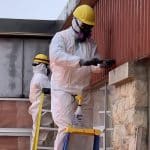In the vibrant city of Vancouver, where old meets new, demolition is a necessary part of growth and redevelopment. However, the importance of employing safe and efficient demolition techniques cannot be understated. Working with a skilled demolition contractor in Vancouver is essential, as they bring expertise in handling the unique challenges of urban demolition. These contractors not only ensure the safety of workers and the public but also contribute to the city’s commitment to sustainability, waste reduction, and responsible construction practices. In this article, we will explore why safe and efficient demolition techniques are crucial in Vancouver, highlight best practices in the industry, and discuss the city’s role in promoting responsible demolition.
Safety First: Protecting Lives and Property
Regulatory Compliance
Vancouver’s demolition industry operates under strict regulations and safety codes. Complying with these regulations is essential to prevent accidents, injuries, and property damage.
Skilled Workforce
Safe demolition practices require a skilled workforce with proper training in equipment operation, structural analysis, and hazard assessment. Vancouver emphasizes the importance of education and training in the industry.
Structural Analysis
Before any demolition project begins, a thorough structural analysis is conducted to determine the stability of the building and identify potential hazards. This analysis guides the development of a safe demolition plan.
Environmental Responsibility: Sustainable Demolition
Waste Management
Efficient demolition techniques prioritize waste reduction. By carefully deconstructing and salvaging materials, Vancouver’s demolition industry helps minimize the amount of waste sent to landfills, aligning with the city’s environmental goals.

Hazardous Material Handling
Older buildings often contain hazardous materials like asbestos and lead. Safe demolition practices include proper handling and disposal of these materials to protect both workers and the environment.
Dust and Emission Control
Vancouver’s commitment to air quality is evident in its efforts to control dust and emissions generated during demolition. Suppressing dust and implementing emissions control measures are standard practices.
Efficiency Matters: Time and Cost Savings
Planning and Preparation
Efficient demolition begins with meticulous planning. Vancouver’s best practices involve thorough project assessments, timeline development, and resource allocation to ensure projects stay on schedule and within budget.
Equipment and Technology
Vancouver’s demolition industry leverages the latest equipment and technology to increase efficiency. High-reach excavators, hydraulic breakers, and robotic demolition tools streamline the process and reduce project timelines.
Skilled Management
Effective project management is key to efficiency. Experienced project managers oversee every aspect of demolition, ensuring that timelines are met, and resources are used optimally.
Best Practices in Vancouver’s Demolition Industry
Deconstruction
Vancouver promotes deconstruction as a sustainable alternative to traditional demolition. This process involves carefully disassembling structures to recover and reuse materials, reducing waste and conserving resources.
Hazardous Material Assessment
Thorough assessment and testing of hazardous materials, such as asbestos and lead, are essential before demolition begins. Safe removal and disposal protect workers and the environment.
Recycling and Salvaging
Efficient demolition practices prioritize the recycling and salvaging of materials like concrete, steel, and wood. This reduces waste and lowers the environmental impact of demolition projects.
Dust Control
Vancouver’s demolition industry implements dust control measures, including water sprays and dust barriers, to minimize airborne particles and protect air quality.
Emissions Reduction
Efforts to reduce emissions include using low-emission equipment and machinery, as well as optimizing fuel consumption during demolition projects.
Vancouver’s Role in Promoting Responsible Demolition
Regulations and Codes
Vancouver’s municipal government plays a crucial role in setting regulations and safety codes for the demolition industry. These regulations ensure that demolition projects adhere to strict safety and environmental standards.
Education and Training
The city supports education and training initiatives to equip demolition professionals with the skills and knowledge necessary for safe and efficient practices.
Sustainable Initiatives
Vancouver actively promotes sustainable demolition practices through incentives, certifications, and partnerships with industry organizations.
Public Awareness
The city encourages public awareness of the importance of responsible demolition practices and provides resources for residents to report any concerns regarding ongoing projects.
Conclusion
The Importance of Safe and Efficient Demolition Techniques : Safe and efficient demolition techniques are at the core of Vancouver’s commitment to responsible construction and redevelopment. These practices not only protect lives and property but also contribute to the city’s environmental sustainability goals. Vancouver’s demolition industry sets a high standard by prioritizing safety, efficiency, waste reduction, and environmental responsibility. As the city continues to grow and evolve, safe and efficient demolition techniques will play a pivotal role in shaping Vancouver’s future, ensuring that progress is balanced with a dedication to safety and sustainability.








